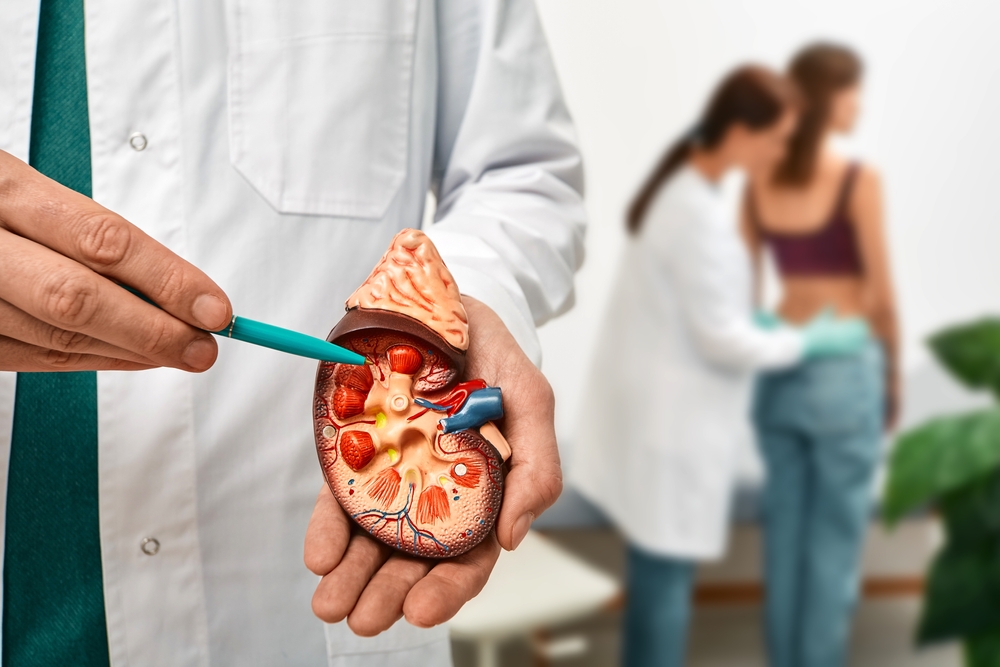As you await a new kidney, you likely have many concerns and questions about life after the transplant. At Kidney Clinic of North Florida, we want you to be knowledgeable and have the best outcome.
Toward this end, it’s essential to be well-informed ahead of the operation. Let’s take a look at what you can expect after kidney transplantation and how to promote its success.
Kidney Transplant Medical Follow-Up
After your hospital discharge, you’ll return to our clinic frequently for check-ups where Dr. Gaurav Tandon will oversee your ongoing care. Dr. Tandon and our team will support you as you go through the entire recovery process. Additionally, our team will update your primary care physician on your medical status.
At your first postoperative exam, we’ll review your medication use, diet, and the precautions to follow.
You’ll also need to have monthly blood tests. Regular labs will reveal any blood markers of kidney rejection, thereby preventing organ damage.
Diet After Kidney Transplantation
As you recuperate, it’s normal to feel weak and tired. During this period, your body needs optimal nutrition to ward off infections and heal. Of particular importance is getting ample protein to build muscle tissue and strength.
Dr. Tandon can inform you of what to include in your diet to help your recovery and will ensure you have everything you need to treat any kidney-related conditions you’re dealing with as well.
Exercise Guidelines
One week after your transplant, you can start doing dome light walking but you will want to limit your activity. Walk for as long as you’re comfortable, increasing the time gradually. At home, you can also do light chores.
Beyond that, you’ll need to avoid lifting anything over 10 lbs. for the next six months. You’ll also want to avoid any strenuous activities as that level of movement could cause complications as you heal.
Most kidney recipients can resume working or attending school within one to two months post-op.
Medication Regimen
You’ll need to take anti-rejection medications for the rest of your life. Make sure to follow Dr. Tandon’s instructions and take all your doses as prescribed. These drugs enable your body to accept the new kidney. Without them, your immune system will attack the organ, viewing it as foreign and threatening.
Still, immunosuppressants can raise your risk of infection. Meanwhile, your body will be adjusting to the new drugs, so be alert for any adverse side effects and notify us immediately if you’re having any issues.
Red Flags for Kidney Rejection
Even while taking immunosuppressants, your body can reject the new kidney. Indications of postoperative problems include:
- tenderness or pain at the surgical site
- fever
- elevated blood pressure
- debilitating weakness and fatigue
- swollen hands or feet
- weight gain
- voiding less urine than usual
If you have any of these warning signs, promptly call our office. You must receive timely treatment to safeguard your kidney.
On the other hand, some transplant patients have no signs of kidney rejection. However, blood tests will catch any brewing problems at the outset.
Symptoms of Transplant Complications
Some other symptoms that will let you know you’re having transplant complications include:
- Nausea, vomiting, or diarrhea
- Feeling lightheaded or unusually weak
- Fluid retention, such as abdominal bloat
- Bruising or bleeding
- Dry or productive cough with yellow or greenish phlegm
- Skin abnormality, such as a rash
- Vaginal itch or discharge
- Burning sensation while urinating
- Orange-brown or reddish urine
- Black stools
Again, if you’re experiencing any of these issues, call our office as soon as possible.
Kidney Transplant Recovery Tips
Typically, kidney transplant patients return to work or school in one to two months. Complete healing takes about six months. To ensure you’re staying on track, you’ll want to:
- Take your medications as prescribed.
- Avoid strenuous activities, sports, and lifting more than 10 lbs.
- Eat nutritiously and walk as regularly as you can
- Report any medication side effects or red flags of kidney rejection.
- Promptly call our office with any questions or concerns.
Schedule A Consultation
Dr. Gaurav Tandon is a board-certified nephrologist and has been treating people with kidney disease for over 10 years. As Dr. Tandon’s valued patient, you’ll receive the most advanced kidney treatments available. No matter what your kidney concerns are, he can answer your questions and provide the best treatment for you.
To arrange a consultation, call our Jacksonville, FL office today at 904-593-5333 or use our online scheduling form.




